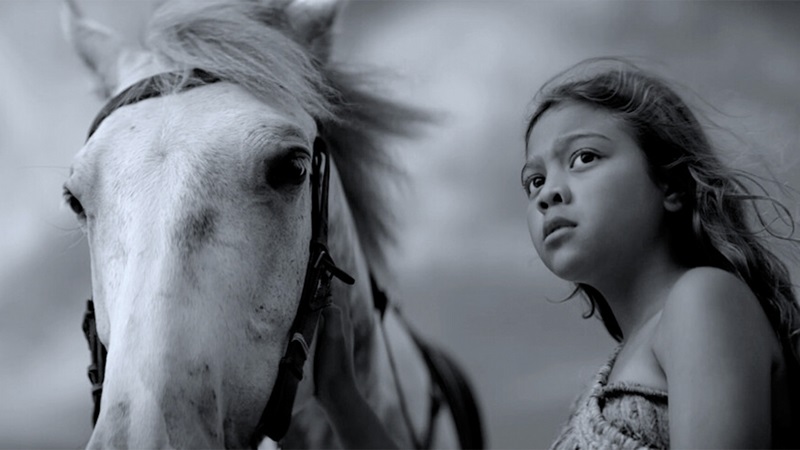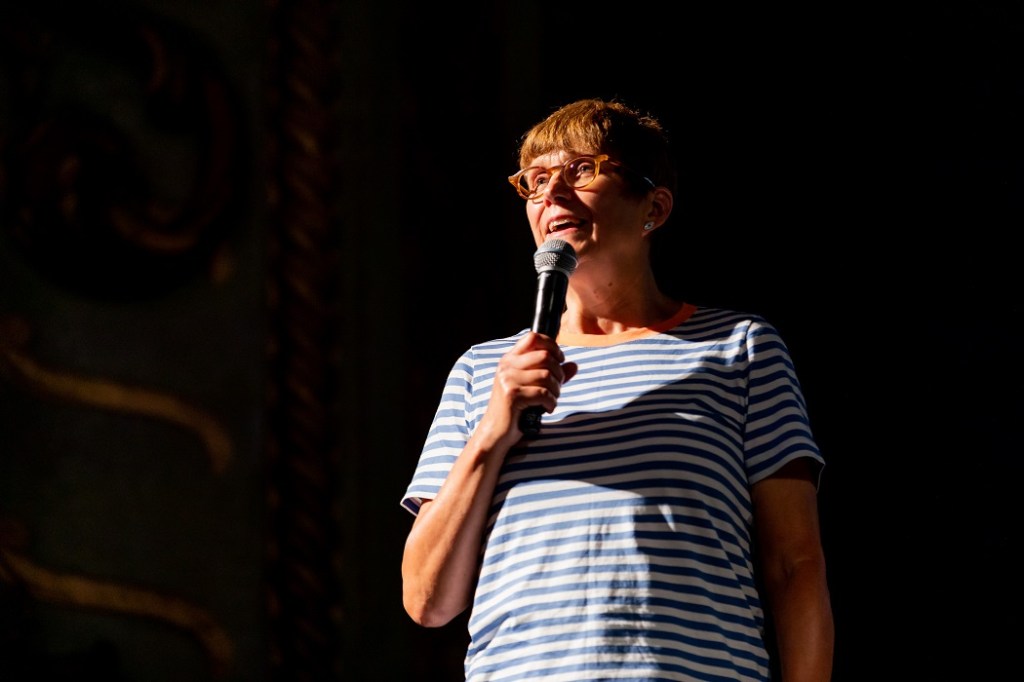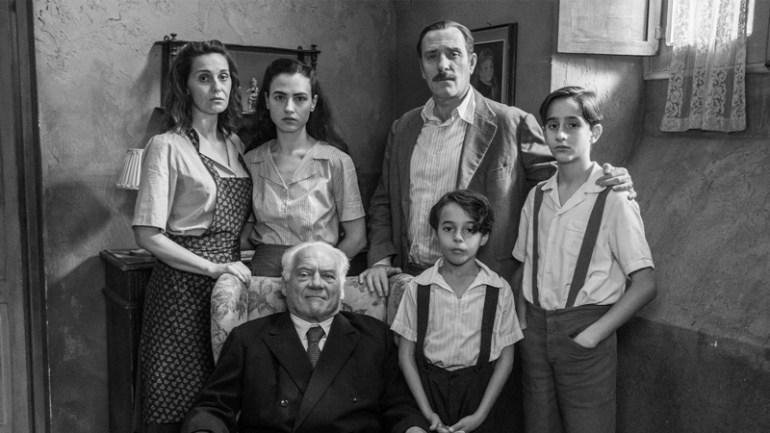This year’s $60,000 Sydney Film Festival prize is coming Rome, with Paola Cortellesi’s Italian dramaThere’s Still Tomorrow awarded the honour at Sunday’s closing night gala.
Cortellesi directed and stars in the film, which follows Delia, a wife and mother doing her best to get by in post-WWII Rome. Money is short and her husband, Ivano, is a violent brute who responds to her morning greeting by slapping her in the face. Her dream is for her daughter Marcella to marry well and lead a better, more comfortable life – the girl’s romance with a boy from a business-owning family bodes well. She finds respite from the violence in a flirtation with an old suitor, Nino (Vinicio Marchioni), and in an unlikely friendship with an American soldier she meets on the streets.
Lorenzo Gangarossa and Mario Gianani produced the drama, which Cortellesi wrote alongside Furio Andreotti and Giulia Calenda.
It struck a chord among Italian audiences upon its release last year, outstripping both Barbie and Oppenheimer to become the country’s biggest film of 2023 and the most successful to be directed by an Italian woman.
In a statement, this year’s competition jury, headed by Bosnian writer and director Danis Tanović, said Cortellesi’s debut feature felt “intensely relevant” today.
“We relive every woman’s struggle for equality through Cortellesi’s “Delia,” we face the brutal cycles of domestic violence with an immense empathy that ultimately proclaims and affirms the virtues of democracy,” the jury said.
“C’è ancora domani deftly weaves humour, style, and pop music into a dazzling black-and-white cinematic event, then it delivers an ending that will take your breath away.”

Limelight Distribution was on hand to accept the prize, with Cortellesi appearing via video link to express her gratitude to the festival’s audience.
“I am honoured to receive this award for my film There’s Still Tomorrow,” she said.
“Thanks to the Sydney Film Festival, and thank you to all of you of course.”
Sunday’s closing night gala also included the inaugural First Nations Award, with New Zealand filmmaker Awanui Simich-Pene’s receiving the $35,000 prize for his short film First Horse. Set in 1826 with Aotearoa on the cusp of colonisation, the film follows a young Māori girl who encounters a dying man and his horse, exposing her to the best and worst of her rapidly changing world.
In the other categories, James Bradley was awarded the Documentary Australia Award’s $20,000 cash prize for Welcome to Babel, which charts Chinese-Australian artist Jiawei Shen’s plans to create an epic work; American filmmaker Alina Simone received the $40,000 Sustainable Future Award for her Russian-set portrait of a Siberian eco-activist Black Snow; Nathan and Nick Lacey’s Die Bully Die won the Dendy Live Action Short Award; Natasha Tonkin’s Darwin Story took out the $7,000 Yoram Gross Animation Award; and Pernell Marsden picked up the $7,000 Rouben Mamoulian Award for Best Director The Meaningless Daydreams of Augie & Celeste.

Chloe Kemp’s short film Say was a multiple winner on the night, with the director awarded the $7,000 AFTRS Craft Award for Best Practitioner and lead actor Bridget Morrison was this year’s Event Cinemas Rising Talent Award recipient, which also comes with a $7,000 prize.
The $10,000 Sydney-UNESCO City of Film Award, bestowed by Screen NSW to a trail-blazing NSW-based screen practitioner, went to Matchbox Pictures director of scripted development Debbie Lee.
Having previously spent time as ABC TV’s Head of Comedy and at SBS and its commissioning arm, SBS Independent, Lee has gone on to serve as executive producer on House of Gods, Class of ‘07, The Heights, Hungry Ghosts, Safe Harbour, The Family Law and Mustangs FC.
She said she was “surprised and honoured” to receive the accolade.
“It means so much to be recognised in my hometown – and especially as part of the Sydney Film Festival which has been an intrinsic part of my life for so many years,” she said.
“I feel lucky to be part of this industry which is equally joyful and endlessly challenging. I’m proud to have played some small part in being an advocate for storytellers and creative teams who help to expand our perspectives and notion of what makes an Australian story.

“Biggest thanks to the many co-conspirators and creative collaborators I’ve had the great fortune to work with over the years and to the teams who bring these stories to life.”
Also honoured at Sunday’s event was SFF head of programs and documentary programmer, Jenny Neighbour, who is leaving the festival after 35 years of service.
In announcing her departure, she said it had been an “immense privilege” to contribute to the event.
“My thanks to all the incredible filmmakers whose films we’ve screened, the sales agents and distributors, projectionists and venue staff, our financial supporters, our awesome festival goers, and of course the extraordinary and super dedicated festival team,” she said.
“It’s a very different festival from the one I joined in 1989, but the festival’s commitment to celebrating the power and diversity of cinema has never changed – and I’m really looking forward to sitting in the audience at the 2025 Festival”.
Sydney Film Festival Director Nashen Moodley said Neighbour’s “industriousness, discernment, and integrity” had been vital to the festival’s development.
“She has long served as the institutional memory and wisdom of the organisation and she will be very much missed,” she said.
“She leaves with the festival in fantastic shape, for which she should take a great deal of credit, and on the occasion of the exceptional high of a great 2024 edition,” said Moodley.


